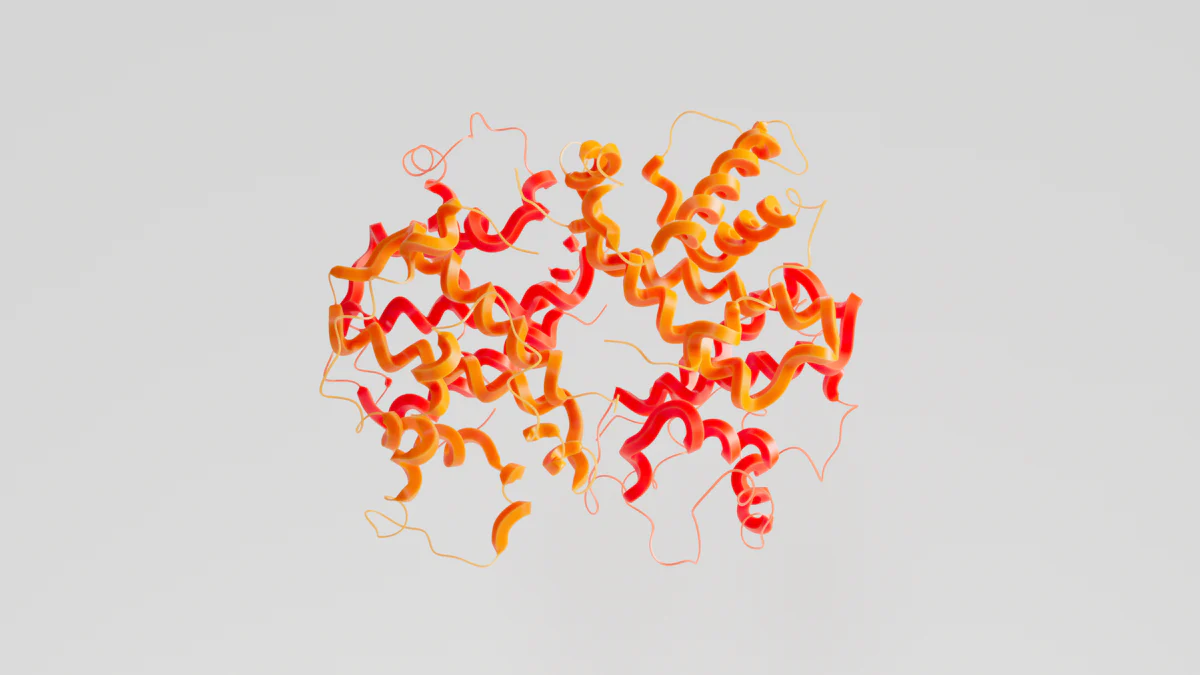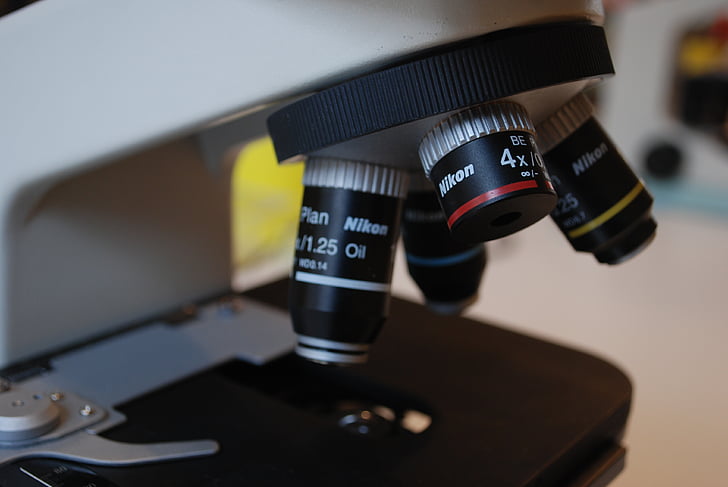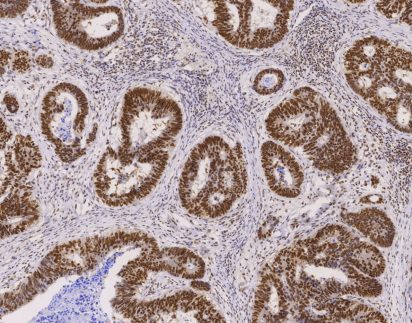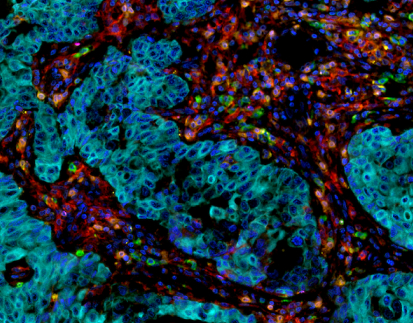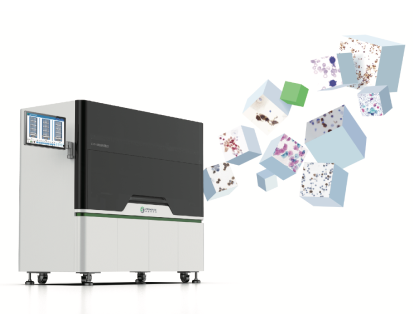Unraveling the Mystery of Primary and Secondary Antibodies: What You Need to Know

By admin
Introduction to Antibodies
Antibodies, also known as immunoglobulins, are essential proteins produced by the immune system to defend the body against harmful invaders. These microscopic defenders play a crucial role in identifying and neutralizing foreign substances such as bacteria and viruses. There are five main types of antibodies, each with specific functions: IgG, IgM, IgA, IgD, and IgE.
The Body’s Defenders
Antibodies act as the body’s vigilant guardians, patrolling the bloodstream and tissues to identify and mark harmful intruders for destruction. When a pathogen enters the body, antibodies recognize its unique surface structures, called antigens, and initiate an immune response to eliminate the threat.
Types of Antibodies
The five classes of antibodies each serve distinct purposes in combating infections and maintaining overall health. For instance, IgG is the most abundant antibody in the bloodstream and is crucial for long-term immunity. On the other hand, IgM plays a primary role in the initial immune response to new infections.
How Antibodies Work
Once an antibody identifies an antigen on an invader’s surface, it binds to it through its Fab domain. This binding action marks the invader for destruction by other immune cells or molecules. The immune response triggered by this interaction leads to the elimination of pathogens from the body.
Binding to Invaders
The binding process between antibodies and antigens is highly specific. Each antibody recognizes only one particular antigen due to its unique structure. This specificity allows antibodies to precisely target different pathogens without affecting healthy cells.
The Immune Response
When antibodies bind to antigens on invading pathogens, they activate various immune mechanisms that work together to neutralize and eliminate the threat. This coordinated effort involves other immune cells such as macrophages and T cells that work synergistically with antibodies to clear infections from the body.
Understanding Primary Antibodies
Primary antibodies play a pivotal role in various scientific and medical applications. They serve as essential tools for identifying specific proteins and biomolecules. Understanding the basics of primary antibodies is fundamental to appreciating their significance in research and diagnostics.
Definition and Function
Primary antibodies are specialized immunoglobulins that directly bind to a particular protein or biomolecule of interest. They are meticulously designed to recognize and mark specific antigens, enabling the identification and isolation of target molecules within complex biological samples. This binding action is highly specific, allowing primary antibodies to distinguish their target from other components present in the sample.
In research settings, primary antibodies are indispensable for techniques such as western blotting and ELISAs. The selective binding capacity of these agents to specific proteins allows researchers to visualize and quantify the presence of these molecules in cell lysates or tissue samples. This function is crucial for elucidating the roles and interactions of various proteins.
How They Are Made
The manufacture of primary antibodies entails employing animal hosts, including rats, mice, goats, and rabbits. These animals are immunized with a target antigen to elicit an immune response that produces antibodies specific to the molecule in question. The antibodies harvested can be classified as monoclonal (mAbs) or polyclonal (pAbs), each possessing unique properties tailored for various applications.
Monoclonal antibodies are derived from a single clone of antibody-producing cells and exhibit high specificity for their target antigens. On the other hand, polyclonal antibodies are produced by multiple clones of cells and recognize several epitopes on the antigen. This diversity allows polyclonal antibodies to provide robust signals in assays where multiple binding sites are advantageous.
Primary Antibodies in Research
In scientific research, primary antibodies serve as invaluable tools for identifying proteins within complex mixtures. By selectively recognizing target molecules, they enable researchers to study protein expression patterns under various experimental conditions.
Identifying Proteins
Primary antibodies are utilized in techniques like immunohistochemistry (IHC) and immunofluorescence microscopy to visualize protein localization within cells or tissues. Their ability to specifically bind to individual proteins enables precise visualization under a microscope, providing insights into cellular structures and functions.
The Importance in Diagnostics
In diagnostic testing, primary antibodies contribute significantly to early disease detection by recognizing specific antigens associated with various health conditions. Their use in assays such as enzyme-linked immunosorbent assays (ELISAs) allows for accurate quantification of disease markers present in patient samples.
The Role of Secondary Antibodies
Secondary antibodies play a pivotal role in enhancing the detection and purification of target antigens in various immunoassays. Understanding the distinction between secondary and primary antibodies is essential for harnessing their unique functions effectively.
Secondary Antibodies Explained
How They Differ from Primary Antibodies
While primary antibodies directly recognize and bind to the specific target antigen, secondary antibodies differ in their mode of action. They are raised against the isotype of the primary antibody and are used to detect the primary antibody by binding to it in more than one place. This indirect interaction allows secondary antibodies to amplify signals and enhance the detection sensitivity in immunoassays.
Their Unique Function
Secondary antibodies play a crucial role in enhancing the detection and purification of target proteins. They function by binding to primary antibodies, which allows for indirect facilitation in the visualization and quantification of target antigens. This interaction amplifies the signals emitted by primary antibodies, thereby greatly increasing both the sensitivity and specificity of immunoassays. As a result, researchers can more precisely identify and analyze target molecules within complex biological samples, making secondary antibodies invaluable tools in biochemical analysis.
In scientific studies, secondary antibodies broaden research capabilities by enabling multiplexing assays that involve simultaneous detection of multiple targets. This capability enhances experimental efficiency and provides comprehensive insights into complex biological processes.
Secondary Antibodies in Scientific Studies
Enhancing Detection
Secondary antibodies are indispensable tools for enhancing signal detection in various immunoassays. Their ability to bind to primary antibodies amplifies the signals generated by the latter, leading to improved visualization and quantification of target antigens. This enhancement is particularly valuable when working with low-abundance proteins or samples with limited quantities, where sensitive detection is crucial for obtaining reliable data.
Broadening Research Capabilities
Secondary antibodies significantly enhance signal detection and expand research capabilities by enabling multiplexing assays. These assays are crucial for detecting multiple targets within one sample, facilitating simultaneous analysis of complex interactions among various biomolecules. Utilizing secondary antibodies allows scientists to acquire a detailed comprehension of sophisticated biological processes, thereby fostering groundbreaking discoveries and progress in diverse disciplines such as molecular biology, immunology, and pharmaceutical development.
By utilizing secondary antibodies alongside primary ones, researchers can unlock new dimensions of insight into cellular functions and disease mechanisms.
Celnovte Biotech is a high-tech enterprise that was established in 2010. The company is dedicated to the research, development, production, and sales of precision diagnostic instruments and reagents for tumors. It has a production, quality control, and research and development system that complies with GMP requirements.
Celnovte Biotech offers a comprehensive range of primary antibodies for immunohistochemistry. They have mastered the core research and development technology in this field and currently have over 460 primary antibodies available. In addition to primary antibodies, Celnovte Biotech also provides secondary antibody detection systems, immunohistochemistry quality control products, and fully automated staining platforms.
Practical Applications and Importance
In Medical Research
Primary antibodies play a pivotal role in advancing medical research, contributing to the development of innovative strategies for combating diseases and improving patient outcomes. Their versatile applications in various scientific investigations have led to groundbreaking discoveries that have significantly impacted clinical practice.
Fighting Diseases
The application of primary antibodies in medical research has facilitated significant advancements by allowing scientists to decode the molecular underpinnings of various diseases, thereby revealing potential targets for therapy. Specifically, primary antibodies have been instrumental in analyzing abnormal protein expression patterns related to cancer, illuminating new biomarkers that may enable early diagnosis and more precise treatment options. Utilizing these antibodies, researchers are able to acquire crucial insights into disease pathogenesis and craft customized therapeutic approaches to enhance the efficacy of illness management.
Case Studies:
- In a recent study titled “Unveiling Cancer Biomarkers through Primary Antibody Technology,”researchers utilized primary antibodies to analyze tumor samples from patients with lung cancer. The findings revealed distinct protein signatures associated with different subtypes of lung cancer, paving the way for personalized treatment approaches.
- A separate investigation titled “Targeting Disease-Specific Antigens Using Primary Antibodies”demonstrated the efficacy of primary antibody-based therapies in selectively targeting disease-specific antigens, presenting a promising avenue for precision medicine.
Developing Treatments
The insights derived from primary antibody-based research have catalyzed the development of novel therapeutic interventions aimed at addressing unmet medical needs. By elucidating the intricate roles of specific proteins in disease progression, scientists can design targeted therapies that aim to modulate these molecular pathways, offering new hope for patients battling various conditions.
Case Study:
- In a groundbreaking clinical trial entitled “Precision Medicine Approaches Guided by Primary Antibody Profiling,”primary antibody technology was instrumental in identifying unique protein targets implicated in autoimmune disorders. This knowledge paved the way for the development of biologics that specifically target these molecules, leading to improved treatment outcomes and enhanced quality of life for affected individuals.
In Diagnostic Testing
The application of primary antibodies extends beyond research laboratories into diagnostic settings, where they play a crucial role in early disease detection and monitoring health conditions. Their ability to recognize specific biomarkers associated with various illnesses enables accurate and reliable diagnostic testing, ultimately contributing to improved patient care.
Early Detection of Illnesses
Primary antibodies are integral components of diagnostic assays designed to detect disease-specific markers present in patient samples. By harnessing the specificity and sensitivity of primary antibodies, healthcare professionals can identify subtle changes indicative of underlying health issues at an early stage. This early detection empowers timely intervention and enhances the prospects for successful treatment outcomes.
Monitoring Health Conditions
In addition to facilitating early diagnosis, primary antibodies are instrumental in monitoring health conditions over time. Through longitudinal testing using assays incorporating primary antibodies, healthcare providers can track changes in biomarker levels associated with chronic diseases or therapeutic responses. This ongoing monitoring aids in disease management and allows for personalized adjustments in treatment plans based on individual patient profiles.
By leveraging primary antibody technology across diverse medical applications, researchers and healthcare practitioners continue to make significant strides towards improving patient care and advancing our understanding of complex diseases.
Other matters to remember
Additional Considerations in Antibody Research
As the scientific community continues to harness the potential of antibodies in research and diagnostics, ethical considerations regarding the use of animal hosts have garnered significant attention. While animal-derived antibodies have undeniably contributed to scientific advancements, it is imperative to critically evaluate their utilization and explore alternative approaches that prioritize animal welfare.
Ethical Use of Animal Hosts
The ethical implications of utilizing animals for antibody production are multifaceted. From a philosophical standpoint, there is an ongoing discourse surrounding the scientific justification for animal use and the exploration of alternative methods. The European Union (EU) has underscored the core values of replacing, reducing, or refining animal use in research while emphasizing the imperative to enhance the quality of scientific inquiry.
Moreover, ethical considerations extend to the methods employed in antibody production. The discontinuation of raising antibodies in murine ascites reflects a conscientious shift towards more humane practices within the scientific community. Additionally, ethical deliberations encompass the administration of labeled antibodies to both healthy volunteers and patients who may not directly benefit from such procedures. This necessitates adherence to legal requirements governing in vivo monoclonal antibody use in humans, encompassing radiation hygiene, pharmaceutical legislation, radiopharmaceutical regulations, and biotechnological product standards.
Environmental Impact of Antibody Production
In tandem with ethical considerations, it is essential to recognize the environmental impact associated with antibody production processes. Sustainable practices and eco-conscious approaches are pivotal in mitigating environmental repercussions stemming from antibody manufacturing. Embracing environmentally responsible methodologies can contribute to minimizing ecological footprints while advancing scientific endeavors.
Future Trends in Antibody Technology
Advancements in Antibody Engineering
The field of antibody technology is poised for continual advancement through innovative engineering approaches. Cutting-edge developments aim to enhance antibody specificity, affinity, and functionality, paving the way for tailored applications across diverse research domains.
Potential for Targeted Drug Delivery
Antibodies hold immense promise as vehicles for targeted drug delivery systems. By leveraging their specific binding capabilities, antibodies can be harnessed to precisely deliver therapeutic agents to designated sites within the body. This targeted approach offers unprecedented opportunities for personalized medicine and precision-targeted therapies.







